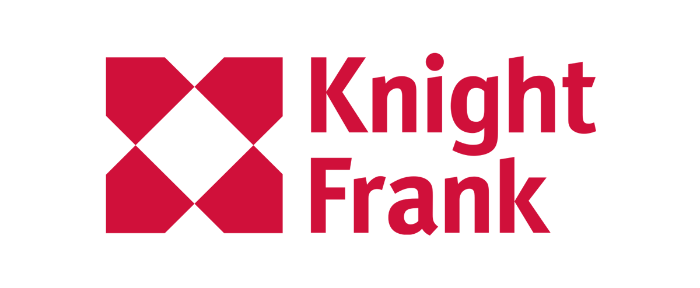Sustainability is a fundamental aspect of Vision 2030, and Saudi Arabia is committed to achieving its net-zero target by 2060; however, the adoption of sustainability considerations remains its initial stages in Saudi Arabia.
As the concept of Environmental, Social, and Governance (ESG) gains momentum in the region, Saudi Arabia has implemented various initiatives to promote sustainable practices. These efforts are outlined in Knight Frank’s recently published report,”Sustainable Saudi: Exploring the ESG Vision.”
Faisal Durrani, Head of Middle East Research, says, “As we witness the transformative power of sustainable initiatives in Saudi Arabia, it is evident that the Kingdom is embracing the path to a greener and more responsible future. With an ambitious target to generate 50% of energy from renewable sources by 2030, coupled with significant investments in large-scale solar and wind farms, the renewable energy transition is quickly unfolding”.
Furthermore, Knight Frank says, the commitment to mitigating climate change is demonstrated by the government’s Green Initiative and the Middle East Green Initiative, solidifying the authorities’ dedication to combating climate-related challenges.
Knight Frank also highlights the increased focus on sustainable investing, as reflected in the ESG disclosure guidelines introduced by the Saudi Stock Exchange, which demonstrates the Kingdom’s commitment to aligning financial decisions with environmental, social, and governance considerations. Separately, addressing water scarcity challenges through the National Water Strategy and adopting advanced technologies for water conservation and management further underscores the country’s dedication to responsible resource utilisation. The increasing prevalence of social responsibility programs, such as the SAR 25 million donation by ROSHN group, showcases the commitment of businesses to uplift communities and address societal needs. Investors too are increasingly recognizing the long-term benefits of ESG investments.
Durrani continued: “ESG-rated assets tend to exhibit lower operating costs, reduced energy consumption, and enhanced resilience to climate-related risks, leading to improved financial performance and asset value over time. Consequently, investors are willing to pay a premium for ESG-rated assets, expecting higher returns and lower risks in the long run. Occupiers too are being drawn to such offices, which is why we see grade A occupancy levels standing at 98%”.
In light of these trends, international blue-chip businesses with extensive sustainability initiatives are particularly interested in ESG-rated assets. Occupying such buildings allows them to showcase their commitment to sustainability, fulfill corporate social responsibility, and attract and retain top talent. In Riyadh, developments like Business Front, King Abdullah Financial District, Laysen Valley, and Business Gate command the highest rental rates, reflecting the growing demand for new or modern developments with a strong focus on community living and ESG aspects.
Durrani adds, “In Riyadh and Jeddah, the abundance of aging office stock presents a unique opportunity for developers and landlords to breathe new life into their properties while aligning with sustainability goals. Renovation and modernisation, adaptive reuse with green principles, and even demolition and reconstruction are options to be considered, albeit the latter options come with a high carbon footprint than refurbishing.”
Knight Frank estimates that Riyadh has an estimated office stock of 5.1 million square meters, with 2.15 million square meters comprising Grade A office stock built before 2015, highlighting the growing challenge for landlords of older buildings.
“The shortage of office space is driving some occupiers to consider purpose building their own HQ’s, which is growing in popularity. This allows businesses to prioritise employee well-being, productivity, and engagement. Companies like Arabian Oud, Jarir, Alinma Bank, STC, the Ministry of Civil Service, and SDAIA are leading by example, constructing their own headquarters with a focus on comfortable and ergonomic workspaces that foster collaboration and creativity”, Durrani said.
These planned headquarters Riyadh are estimated at 1.4 million square meters, reflecting the growing popularity of this option as prime grade A space availability dwindles.
While Saudi Arabia’s 58.4% success rate in LEED certification highlights the proportion of projects meeting stringent requirements for sustainable design, construction, and operation set by LEED, the United Arab Emirates (UAE) leads among Middle Eastern countries with 2,072 LEED registered projects.
Andrew Love, Partner – Head of ME Capital Markets & OLSS, says, “As our business world embraces a heightened awareness of sustainability, the integration of ESG considerations into real estate operations has shifted from choice to a resolute strategic imperative. Riyadh’s Grade A Office Spaces, boasting an impressive 98% occupancy rate, bear witness to the allure of ESG-rated assets, attracting international blue-chip businesses committed to sustainability.
The launch of ESG disclosure guidelines by the Saudi Stock Exchange in 2021 further reinforces the importance of ESG reporting and awareness in the local market. In this dynamic landscape, forward-thinking developers recognise that to captivate large multinational or international tenants, green building principles and ESG must lie at the heart of their designs. While the local market may not currently demand these features, the evolving tide reveals a growing number of tenants seeking buildings with robust ESG credentials. To secure a resilient future over the next 5-10 years, developers must prioritise these guiding ESG principles, embedding them into their projects.”
Sustainable financing is also on the rise in Saudi Arabia, with a growing demand for environmental and socially responsible initiatives. The Public Investment Fund’s successful completion of two international green bond issuances, totalling $8.5 billion, and NEOM’s planned $80 billion IPO, highlighting its commitment to sustainable development, are driving positive change and reinforcing Saudi Arabia’s dedication to sustainability.
Harmen De Jong, Partner – Real Estate Strategy & Consulting, KSA comments: “Green financing in Saudi Arabia signifies a profound shift towards a more sustainable and responsible future. As the demand for environmentally and socially conscious initiatives grows, we witness a remarkable transformation taking place. Through visionary actions such as the successful completion of international green bond issuances and the commitment to sustainable development demonstrated by NEOM’s planned IPO, Saudi Arabia is at the forefront of driving positive change. This steadfast dedication to sustainability not only fuels progress but also serves as a powerful reminder that green financing holds the key to shaping a greener and more prosperous world.”

COMMENTS